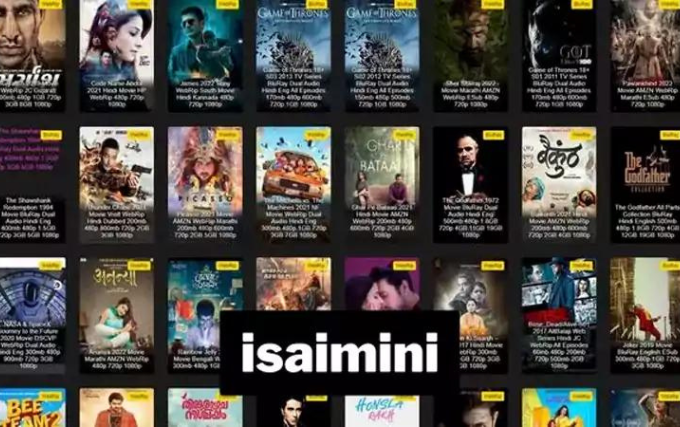In the realm of online entertainment, Isaimini has emerged as a significant player, offering a vast array of Tamil movies, songs, and other media content for free. However, behind its seemingly convenient services lies a web of controversy and legal battles. In this article, we delve into the world of Isaimini, exploring its origins, operations, and the ethical and legal dilemmas it presents.
Understanding Isaimini: Origins and Operations
Isaimini, also known as Moviesda, is a notorious website known for leaking copyrighted Tamil movies, songs, and television shows online. Despite efforts by authorities to shut it down, the website continues to operate through various domain extensions and mirror sites. Isaimini’s popularity stems from its extensive collection of Tamil content, easily accessible to users for free. However, this convenience comes at a significant cost to the entertainment industry and creators who lose out on revenue due to piracy.
The Ethical Dilemma: Free Access vs. Copyright Infringement
At first glance, Isaimini may seem like a boon for consumers, providing access to entertainment content without the need for subscriptions or payments. However, the ethical implications of accessing pirated content cannot be ignored. By using Isaimini or similar websites, users are actively participating in copyright infringement, depriving creators of rightful compensation for their work. This raises questions about the value of intellectual property and the importance of supporting the creative industries through legitimate channels.
Legal Battles and Consequences
Isaimini’s operations have not gone unnoticed by authorities, leading to legal battles and consequences for those involved in its administration. The website has faced multiple takedown notices and domain seizures, only to resurface under different aliases. Additionally, individuals caught distributing or downloading copyrighted content from Isaimini may face legal repercussions, including fines and even imprisonment. Despite these deterrents, the allure of free entertainment often outweighs the risks for many users, perpetuating the cycle of piracy.
Impact on the Entertainment Industry
The proliferation of piracy websites like Isaimini poses a significant threat to the entertainment industry, particularly in regions like Tamil Nadu, where the film industry is a vital cultural and economic force. Piracy not only undermines the revenue potential of movies and music but also discourages investment in new projects and talent. Moreover, the unchecked spread of pirated content hampers efforts to combat piracy and protect intellectual property rights, creating a challenging landscape for creators and stakeholders.
Addressing the Issue: Combating Piracy and Promoting Legal Alternatives
To address the issue of online piracy, concerted efforts are needed from both authorities and consumers. Law enforcement agencies must strengthen enforcement measures and collaborate with internet service providers to block access to piracy websites like Isaimini. Additionally, educating the public about the consequences of piracy and promoting legal alternatives for accessing entertainment content are essential steps in combating piracy effectively. By supporting legitimate streaming platforms and purchasing licensed content, consumers can contribute to the sustainability of the entertainment industry and uphold the value of intellectual property rights.
Conclusion: Navigating the Complexities of Online Piracy
Isaimini’s presence in the digital landscape underscores the complex interplay between convenience, ethics, and legality in the realm of online entertainment. While it offers users easy access to Tamil movies and songs, its operations raise serious concerns about copyright infringement and its impact on the entertainment industry. As consumers, it is crucial to recognize the consequences of supporting piracy and advocate for ethical and legal means of accessing content. By fostering a culture of respect for intellectual property rights and supporting creators’ efforts, we can strive towards a more sustainable and vibrant entertainment ecosystem for future generations.
